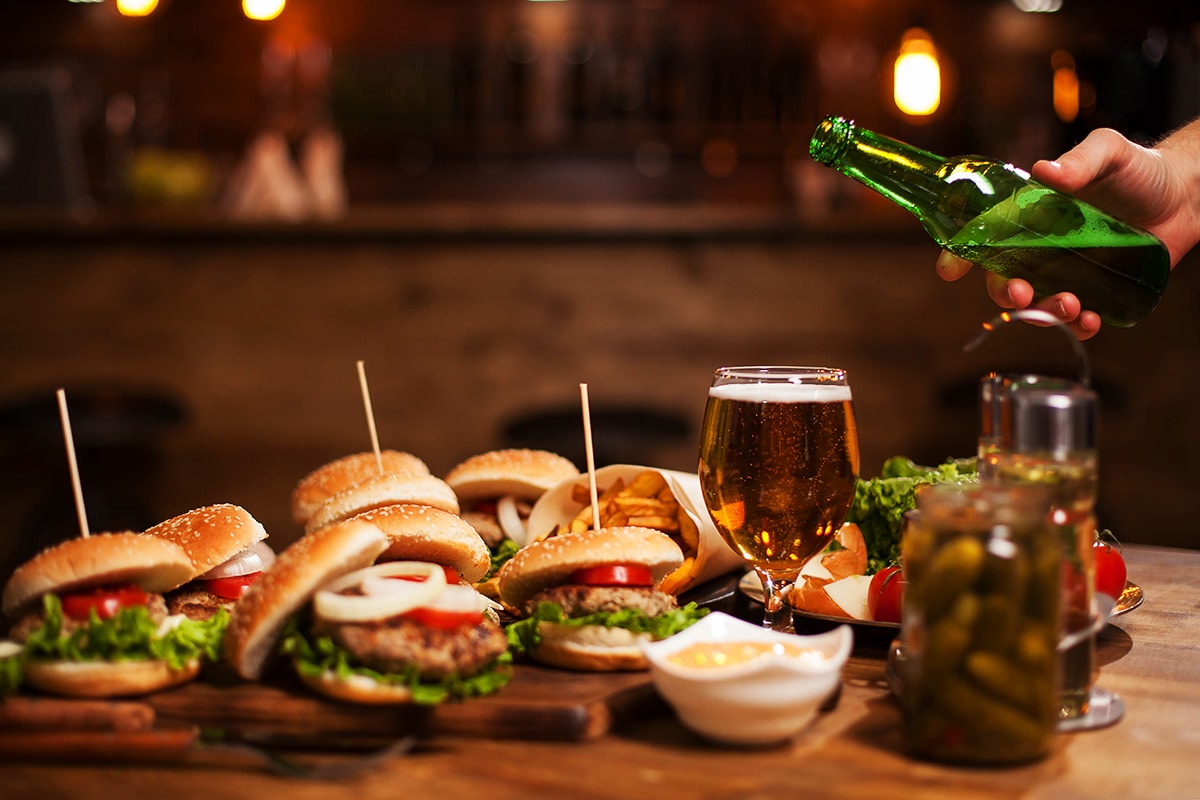The Disturbing Truth about Fast Food
Fast food chains have been a fixture on roadsides for decades, and the drive-thru window has become a convenient stop for many American families on their way to school or work. However, convenience comes with a price. The truth is, fast food is slowly killing us, and the consequences of our love affair with greasy, salty food are enormous. In this article, we’ll explore the disturbing truth about fast food, and why it’s so harmful to our physical and mental health.
The Health Risks of Fast Food
Fast food has been linked to a host of health problems, from obesity to heart disease and diabetes. Despite the high calorie content of many fast food items, many people underestimate the health risks associated with eating fast food on a regular basis. For instance, a single meal at a fast food chain can contain as many calories as you need for an entire day, and the high levels of sodium, saturated fat, and cholesterol can wreak havoc on your body over time.
Another issue is the portion sizes offered by fast food chains – many meals come in oversized portions that encourage overeating. This is particularly concerning in light of the fact that fast food is generally low in fiber and other nutrients, meaning that it provides little nutritional value. This can lead to malnourishment and a host of related health problems, including fatigue, weakness, and even depression.
The Mental Health Impact of Fast Food
While fast food is often vilified for its impact on physical health, its impact on mental health is often overlooked. Studies have shown a correlation between high levels of fast food consumption and an increased risk of depression, anxiety, and other mental health disorders. This may be due in part to the high levels of sugar and processed ingredients found in fast food, which can affect brain chemistry and lead to mood swings.
Another issue is the psychological impact of fast food. The convenience and affordability of fast food may make it appealing to people who are busy and on-the-go, but it can also create a habit of emotional eating. This can be particularly damaging for those who struggle with addiction or mental health issues. The emotional attachment to fast food can lead to guilt, shame, and a cycle of unhealthy eating habits that are difficult to break.
The Economic and Environmental Costs of Fast Food
The impact of fast food goes beyond just our health. The economic and environmental costs of the fast food industry are significant. For instance, fast food chains often pay their employees low wages, leading to poverty and inequality. They also contribute to a culture of consumerism that encourages people to prioritize convenience and instant gratification over health and well-being.
Fast food also takes a toll on the environment. The production of fast food ingredients has been linked to deforestation, water pollution, and other environmental problems. The transportation and packaging of fast food also generate a large amount of waste, contributing to the global waste crisis. In short, fast food is not just bad for our health – it’s bad for the planet as well.
How to Break the Fast Food Habit
While it’s easy to fall into the trap of fast food, breaking the habit is not as difficult as you might think. There are a few simple things you can do to start eating healthier, more nutritious foods:
1. Plan ahead – take a few minutes each week to plan out your meals and snacks, and keep healthy options on hand.
2. Cook at home – cooking your own meals at home allows you to control the ingredients and portion sizes, and can be a fun and rewarding experience.
3. Choose healthy options – when eating out, opt for healthier options like salads, grilled chicken, and vegetable sides.
4. Educate yourself – read up on the health risks and environmental impact of fast food to stay motivated and informed.
5. Make it a lifestyle – instead of focusing on short-term goals, make healthy eating a part of your lifestyle by gradually incorporating more nutritious foods into your diet.
Why We Need to Take Action
The disturbing truth about fast food is that it’s slowly killing us – not just physically, but mentally and environmentally as well. The health risks are well-known, but the economic and environmental costs are equally troubling. We need to take action to break the habit of fast food and prioritize healthy, nutritious options instead. By doing so, we can improve the quality of our lives and the health of our planet for generations to come.
Summary
Fast food is convenient, affordable, and often delicious, but it comes with a heavy price. The health risks of fast food are well-documented, with links to obesity, heart disease, and other chronic illnesses. The impact on mental health is often overlooked, with fast food consumption linked to depression, anxiety, and other mental health disorders. The economic and environmental costs of the fast food industry are also significant, with low wages, poverty, and environmental degradation all linked to fast food production and consumption. However, breaking the habit of fast food is not as difficult as you might think – by planning ahead, cooking at home, choosing healthy options, and educating yourself, you can break the cycle of unhealthy eating habits and prioritize your health and well-being. Ultimately, we need to take action to prioritize healthy, nutritious options and break the habit of fast food once and for all.

Deja una respuesta